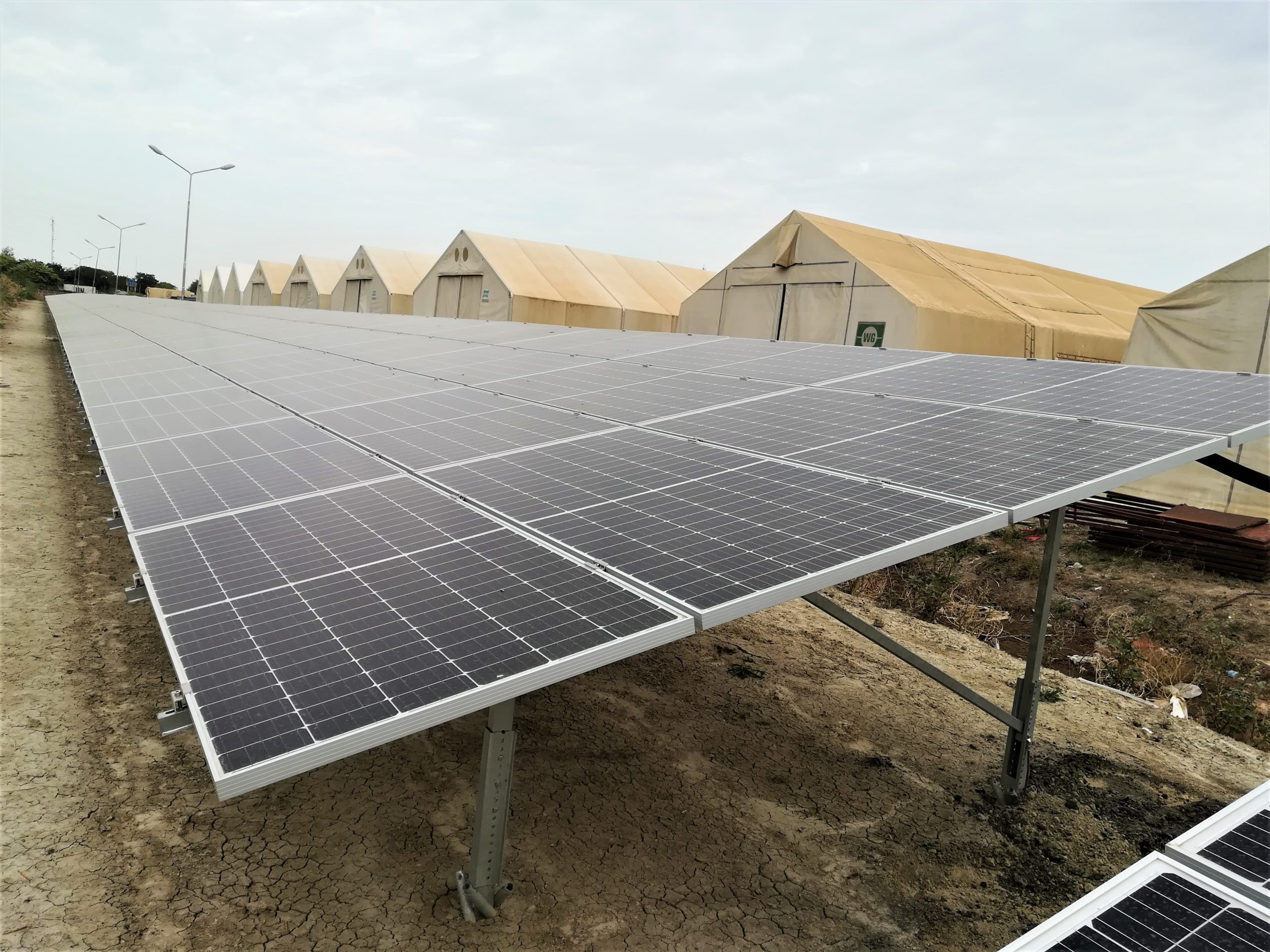
Oslo 5 June 2020: Scatec Solar has commissioned a combined solar and battery storage plant in Malakal, South Sudan. The plant will power the Humanitarian Hub in Malakal, which is managed by the International Organization for Migration (IOM). The project will reduce the diesel consumption at the Hub by at least 80%.
“We are thrilled to have completed this project for IOM and the Humanitarian Hub in Malakal. This is our second hybrid project for a United Nations (UN) organisation in South Sudan, and with a third project to be completed for UNMISS in the next few weeks, we are reinforcing our support of the United Nations in their quest to reduce their use of fossil fuels,” says CEO of Scatec Solar, Raymond Carlsen.
Scatec Solar has developed the project in partnership with Kube Energy. The plant, with a solar PV capacity of 700 kWp, combined with a 1,368 kWH battery energy storage system is connected to IOM existing diesel generators. The delivery of solar power will represent 80% of the energy consumed at the hub, greatly reducing the need for diesel, and providing significant reductions in both CO2 emissions and energy costs. This is a key step in meeting UN targets on abatement of greenhouse gas emissions. Another obvious benefit is the silence already noticed by people at the Hub now that the generators are turned off most of the time.
“South Sudan enjoys sunshine all year round. Even during the rainy season, we still have long periods of sun, so this bid to shift to solar power was a no brainer. It made absolute sense to fully optimize the power of the sun in this way,” says IOM South Sudan Chief of Mission, Jean-Philippe Chauzy.
“Investing in renewable energy is investing in a sustainable future and the launch of this innovative project will undoubtedly help us path a way towards the use of more renewable energy systems within the humanitarian sector,” Chauzy adds.
The project is provided through a flexible energy supply agreement. Carlsen is convinced of the potential of similar leasing arrangements to support the transition to clean energy in humanitarian operations: “Through providing leasing of solar hybrid plants, we are reducing the barriers for using renewables. The combination of a movable, quickly installed equipment and flexible contract length increases our customer’s financial flexibility, allowing them to access clean and reliable solar power through monthly invoices, rather than high upfront investments”.
The Humanitarian Hub hosts around 300 workers and 34 organisations. As most remote operations, they rely heavily on diesel-run generators, which are polluting, costly and quite often inefficient. IOM seeks to improve the Humanitarian Hub’s environmental footprint, and the project is an ideal step towards reducing IOM’s dependence on non-renewable energy.
For further information, please contact:
Scatec Solar
Ingrid Aarsnes, VP Communication & IR, tel: +47 950 38 364
email: ingrid.aarsnes@scatec.com
International Organization for Migration
Liatile Putsoa at IOM South Sudan, tel: +21191230104
email: lputsoa@iom.int
About Scatec Solar
Scatec Solar is an integrated independent solar power producer, delivering affordable, rapidly deployable and sustainable clean energy worldwide. A long- term player, Scatec Solar develops, builds, owns, operates and maintains solar power plants and has an installation track record of more than 1.6 GW. The company has a total of 1.9 GW in operation and under construction on four continents.
With an established global presence and a significant project pipeline, the company is targeting a capacity of 4.5 GW in operation and under construction by end of 2021. Scatec Solar is headquartered in Oslo, Norway and listed on the Oslo Stock Exchange under the ticker symbol ‘SSO’. To learn more, visit www.scatec.com.
About the International Organization for Migration (IOM)
IOM began operations in southern Sudan in early 2005 and established the IOM South Sudan mission after the country’s independence in July 2011. Since the outbreak of the conflict in December 2013, IOM has provided support to thousands of host communities, returnees, and internally displaced people including those seeking protection at the United Nations Mission in South Sudan Protection of Civilians sites. IOM has static presences in Juba, Wau, Bentiu, Malakal, Bor, Rumbek and the Abyei Administrative Area, as well as satellite responses in areas such as Magwi, Mayom, Kapoeta, Twic and Yei. IOM has one of the largest UN operational footprints in South Sudan.